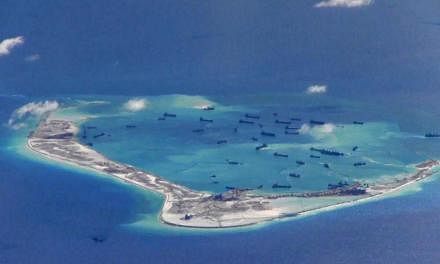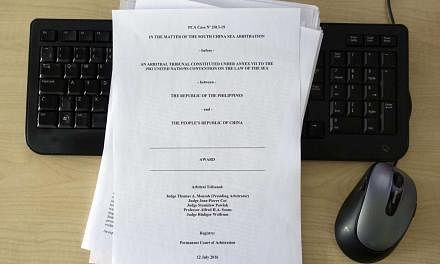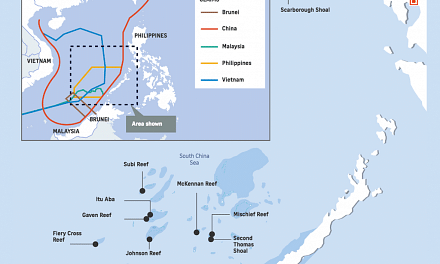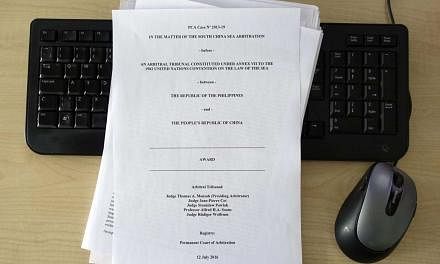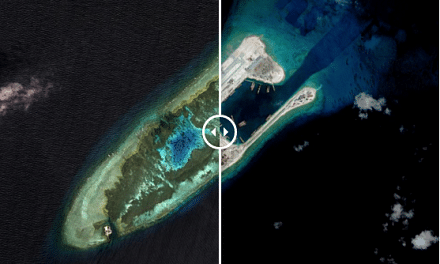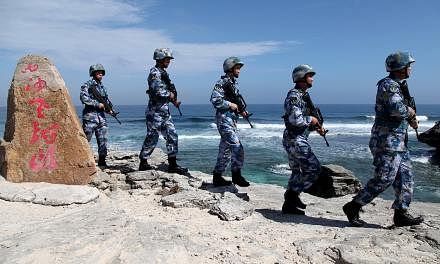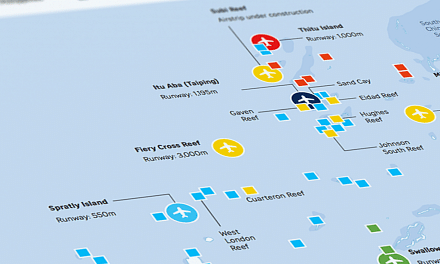It is commonly accepted in the West that the existing world order is built and led by the United States, which is also known as "Pax Americana". This order, as I see it, contains three pillars: first, American or Western values; second, the US-led military alignment; third, the United Nations and its institutions. This world order has its roots in the history of international politics and has made modern contributions.
But where does China stand vis-a-vis this world order? It is not hard to see that China is not fully embraced within this order system. Despite its tremendous progress, China has long been alienated politically by the western world. The US-led military alliance puts their interests above others' and pays little attention to China's security concerns. These days, it is even exerting increasing security pressure on China in the Asia-Pacific.
China as a rising country is becoming more aware of the rising international expectations as well as wariness - that it should play a growing international role. But what does this mean, and is China going to challenge the US? Is power rivalry inevitable?
Let me offer a Chinese perspective here. What you hear from Chinese leaders is that China is indeed part of the international order. One needs to note that the term used here is "international order" and what it refers to is the UN and its institutions, including the principles of international law. This may overlap with the aforementioned "world order" but it is not exactly the same.
China has a strong sense of belonging to this UN-led order system, as China is one of its founders and a beneficiary, a contributor, as well as part of its reform efforts.
Indeed, China is learning and offering its own ideas and initiatives to improve the international order system, for example, the initiation of the Asian Infrastructure Investment Bank (AIIB), and the Silk Road economic belt initiative which would increase the connectivity between Asia and Europe. In the security field, the Chinese president also proposed to build common, comprehensive, cooperative and sustainable security.
Currently, an important security challenge is the dispute in the South China Sea where China and the US have serious differences.
I think the US is taking a geopolitical perspective and this probably comes from a long line of thinking.
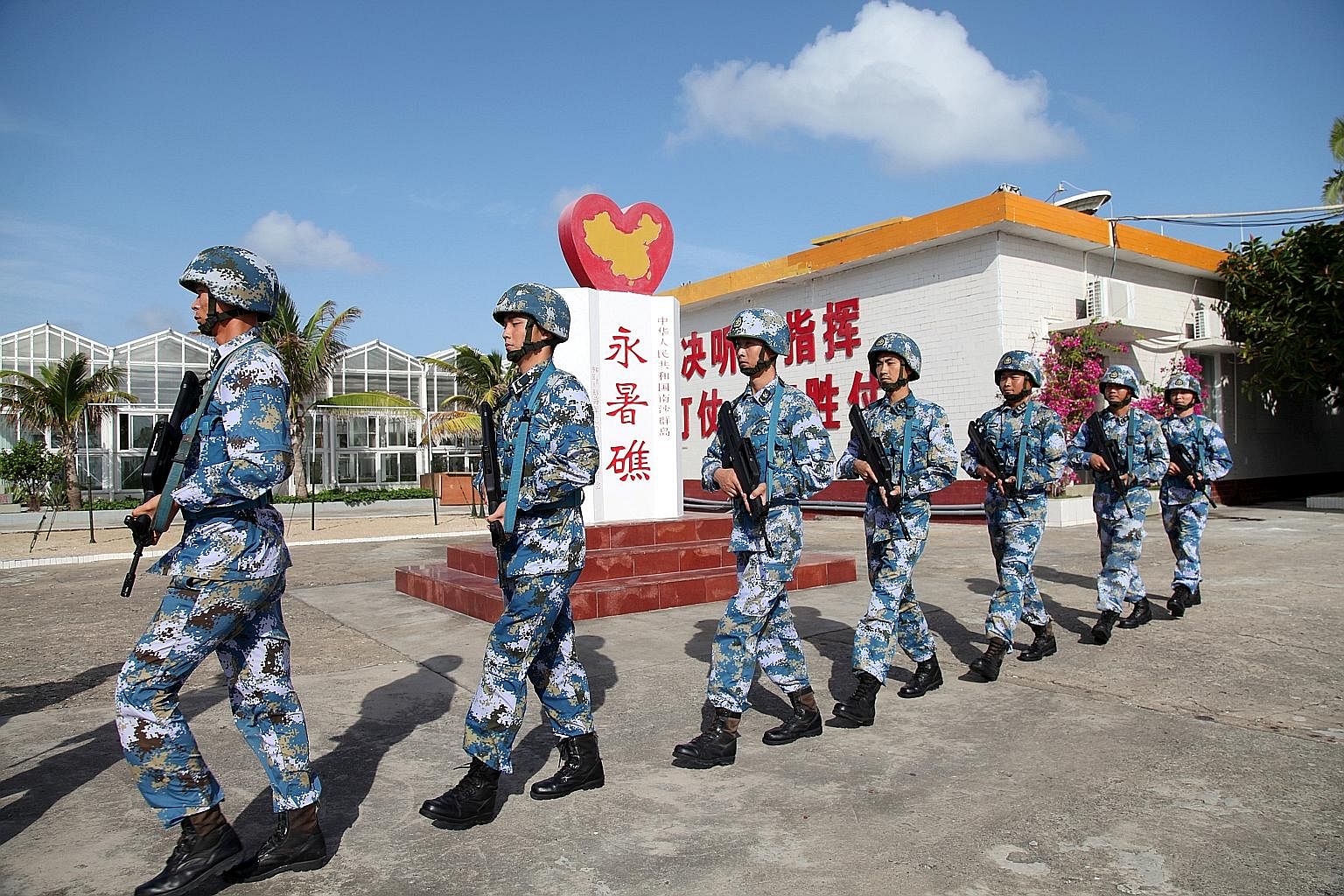
It was the British scholar and MP Halford John Mackinder who, at the beginning of the 20th century, advanced the "Heartland Theory" and stated: "Who rules the Heartland commands the 'World-Island' and, therefore, commands the World".
When the US became a world superpower, it switched its geostrategic emphasis from land to the sea. According to Nicholas Spykman's Rimland Theory: Who controls the Rimland rules Eurasia, and, therefore, controls the destiny of the world. So for the US, controlling strategic sea passages is vital for its world supremacy.
The reason I am recalling this is to try to understand why China's maritime activities like the reconstruction on the Nansha island features would get on the nerves of the US so much.
To put things in perspective, the South China Sea covers 3.5 million sq km, but all the islands and shoals put together amount to less than 20 sq km. The US military and media magnified the issue and presented China's construction works as a sign of geo-strategic ambition. During my visits to the States, I often hear the concern that a confrontation between China and the US is unavoidable if China continues to grow economically.
But for China, especially in the eyes of the Chinese general public, the focus of concern is the sovereignty over Nansha islands and shoals and the surrounding waters. Nansha is the most southern group of land features of the four archipelagos in the South China Sea. Chinese people firmly believe that we own those land features since ancient times.
China's authority over Nansha was returned to China from Japan after World War II and was respected widely. For instance, countries including the US apply to the Chinese side when carrying out maritime research activities in the vicinity. It was during the deep Cold War that some neighbours started to occupy some land features, claiming the discovery of new territory. But really, who would discover new territories after World War II?
China improved relations with its neighbours during the 1990s, and with years of patient negotiations, arrived at a consensus about allowing the disputes to be resolved bilaterally through peaceful negotiation while the region moved on for cooperation. The Declaration on the Conduct of Parties in the South China Sea (DOC) capped the efforts and provided a rule-based structure for managing the disputes.
But recent years saw increasing provocations by some claimant countries in disregard of the DOC spirit and in an attempt to make their occupation of Chinese territory permanent and legal. China, frustrated by futile persuasion, decided to reinforce its own presence, including keeping better vigilance and making enlargement construction.
All this was happening against the backdrop of the US Asia- Pacific rebalancing, which has growing military content and is giving greater emphasis to the interests of US military alignment. This development added a new dimension. Tension started to heat up when the US sent navy ships and aircraft to operate sometimes very close to China's land features, posing a serious threat. Within China, people increasingly believe that the US is behind those countries who are undermining China's interest.
An act invites reaction and overreaction or misjudgment can have consequences. To overcome tension, China and the US need to have a better understanding of each other's intentions and avoid misjudgment.
So let me specify, what China wants, first and foremost, is to protect its sovereignty and right. To observe China, one should not lose sight of the historical perspective. This country stumbled into the 20th century with its capital under the occupation of the imperialists' armies, and for over a century before and after, China suffered the humiliation of foreign invasion and aggression. That is why the Chinese people and government are very sensitive about territorial integrity and would never allow such recurrence even if it's just an inch of land. We need sufficient defence to ensure that.
Second, China has a strong interest in maintaining freedom and safety of navigation of the international transportation route in the South China Sea, and would make the effort to ensure that.
Third, China believes that we share common interests with neighbouring countries in maintaining peace and stability in the region. We do not have an agenda to gain supremacy. China is negotiating the Code of Conduct with the Asean countries to build effective rules.
Fourth, fundamentally China and the US have common interests in keeping peace and freedom of navigation. For the greater good, the two countries should be able to find a way to cooperate.
I don't see why China and the US should enter into geo-strategic rivalry which will only lead to prolonged power conflict. The world has seen so much of conflict, but there is no reason for us to believe that the so-called "Thucydides Trap" (that predicts conflict between a rising and incumbent power) lies just around the corner.
On July 1 this year, we marked the 95th anniversary of the founding of the Communist Party of China. President Xi Jinping, who is also the General Secretary of the Party, made an important speech reminding the Party to keep to its original aspirations which would lead China to new success. In his speech, he also touched on world affairs and reiterated China's foreign policy objective as promoting world peace and prosperity, as well as China's willingness to work with the world to promote the international order to be fairer to all countries.
• The writer is the former Vice-Minister for Foreign Affairs in China. She is now Chairperson of the Foreign Affairs Committee, National People's Congress of China. This article is adapted from a speech delivered at a Chatham House seminar in London.
